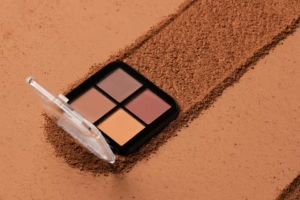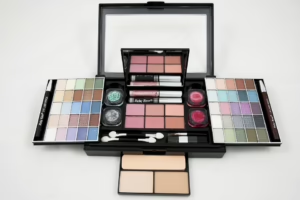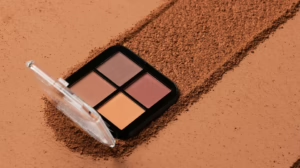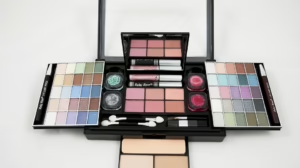Flawless Skin Secrets: Tips from Top Dermatologists
Achieving flawless skin is a universal goal for many people. Clear, smooth skin can greatly influence our confidence and self-esteem. But with the overwhelming amount of conflicting advice and numerous products on the market, it can be challenging to know which secrets truly work. To get to the bottom of this, we turned to the experts—top dermatologists—and compiled their best tips for achieving flawless skin.
Understanding Your Skin Type
Before diving into products and routines, it’s essential to understand your skin type. Dermatologists generally categorize skin types into five groups: normal, oily, dry, combination, and sensitive.
1. Normal Skin
Normal skin is characterized by a balanced level of moisture and oil, with few imperfections. It appears smooth and has a uniform texture.
2. Oily Skin
Oily skin tends to produce excess sebum, leading to a shiny appearance, enlarged pores, and sometimes acne. Those with oily skin should look for non-comedogenic products that won’t clog pores.
3. Dry Skin
Dry skin lacks moisture and can feel tight or flaky. People with dry skin should prioritize hydrating products with ingredients like hyaluronic acid or glycerin.
4. Combination Skin
Combination skin exhibits characteristics of both oily and dry skin. The T-zone (forehead, nose, and chin) may be oily, while the cheeks can be dry.
5. Sensitive Skin
Sensitive skin is prone to irritation and redness. This skin type requires gentle, fragrance-free products to avoid flare-ups.
Tip from the Experts:
Dr. Ava Shamban, a renowned dermatologist, suggests, “Identifying your skin type is the first step to creating an effective skincare regimen. Tailor your products to your specific needs for the best results.”
Daily Skincare Routine Essentials
1. Cleansing
Cleansing is a crucial step in any skincare routine. It removes dirt, oil, and makeup, and prepares the skin for other products. Dermatologists recommend:
- Gentle Cleanser: Use a sulfate-free and pH-balanced cleanser that won’t strip the skin of its natural oils.
- Frequency: It’s advisable to cleanse your face twice a day—once in the morning and once before bedtime.
2. Exfoliation
Exfoliation helps remove dead skin cells, promoting a brighter and smoother complexion.
- Chemical vs. Physical: Chemical exfoliants, such as AHAs and BHAs, are generally preferred over physical scrubs, as they can be gentler and more effective.
- Frequency: Most dermatologists recommend exfoliating two to three times a week to avoid irritation.
3. Toning
Toners can help balance the skin’s pH and remove any leftover impurities. Look for alcohol-free toners that contain soothing ingredients, like witch hazel or aloe vera.
4. Serums
Serums are packed with active ingredients and target specific skin concerns. Popular types include:
- Vitamin C: Brightens the skin and fades dark spots.
- Retinoids: Improve skin texture and reduce the appearance of fine lines.
- Hyaluronic Acid: Hydrates and plumps the skin.
5. Moisturizing
Regardless of your skin type, moisturizing is vital.
- Lightweight for Oily Skin: Gel-based moisturizers are ideal for oily skin, while cream-based options are better for dry skin.
- Ingredients to Look For: Hyaluronic acid, glycerin, and ceramides are excellent for retaining moisture.
6. Sunscreen
Sunscreen is a non-negotiable step in any skincare routine.
- Broad-Spectrum SPF: Choose a broad-spectrum SPF of at least 30 and reapply every two hours, especially on sunny days.
- Daily Use: Even on cloudy or rainy days, UV rays can penetrate through the clouds.
Expert Insight:
Dr. Shari Marchbein emphasizes, “Sunscreen is the best anti-aging product you can invest in. UV exposure is the leading cause of premature aging and skin damage.”
Advanced Skincare Treatments
While a good skincare routine is crucial, dermatologists also recommend incorporating professional treatments for enhanced results.
1. Chemical Peels
Chemical peels involve applying a solution to exfoliate the top layers of skin, revealing a smoother and clearer complexion underneath.
- Types of Peels: Superficial peels are suitable for beginners, while medium and deep peels can address more significant skin concerns.
- Frequency: Treatments are personalized, but most people benefit from one to three sessions spaced several weeks apart.
2. Microneedling
Microneedling is a minimally invasive procedure that creates tiny injuries in the skin, stimulating collagen production.
- Benefits: This treatment can improve skin texture, reduce fine lines, and minimize scars.
- Aftercare: Downtime is minimal, but proper aftercare is essential to protect the healing skin.
3. Laser Treatments
Laser treatments can address a variety of skin concerns, including pigmentation, wrinkles, and acne scars.
- Types of Lasers: Fractional lasers and non-ablative lasers can promote collagen renewal without harming the skin’s surface.
- Consultation: Always seek professional advice to determine which laser treatment is right for you.
Expert Recommendation:
Dr. Dhaval Bhanusali advises, “Consider your skin’s unique needs and consult with a dermatologist to choose treatments that complement your skincare routine.”
Lifestyle Factors and Their Impact on Skin
Achieving flawless skin isn’t solely about products and treatments; lifestyle factors play a significant role as well.
1. Diet and Hydration
What you eat and drink can significantly affect your skin’s health.
- Skin-Friendly Foods: Incorporate antioxidants, vitamins, and healthy fats—think berries, leafy greens, and fatty fish.
- Hydration: Consuming plenty of water helps maintain skin hydration and overall health.
2. Sleep
Quality sleep is essential for skin rejuvenation.
- Cell Repair: During deep sleep, the body repairs damaged cells and produces collagen, which keeps skin looking youthful.
- Tips for Better Sleep: Aim for 7-9 hours of quality sleep each night and establish a relaxing bedtime routine.
3. Stress Management
Chronic stress can lead to skin issues like acne and eczema.
- Stress-Relief Techniques: Consider yoga, meditation, or regular exercise to keep stress levels in check.
- Mindfulness: Practicing mindfulness can also have a positive impact on overall well-being.
Expert Insight:
According to Dr. C. William Hanke, “Managing stress is crucial for skin health. It’s not just about topical treatments; a holistic approach is the key.”
Common Skincare Myths Debunked
1. Myth: Oily Skin Shouldn’t Be Moisturized
Many believe moisturizing will exacerbate oily skin. In reality, all skin types need hydration, even oily skin.
2. Myth: Tanning Cures Acne
While some may think that sun exposure helps clear acne, it can actually lead to more problems, including skin damage and increased oil production.
3. Myth: You Only Need Sunscreen in Summer
UV rays can cause skin damage year-round. Daily sunscreen use is necessary for all seasons.
Expert Advice:
Educating yourself about skincare myths can help you make informed decisions, enhancing your path to flawless skin.
Conclusion
Achieving flawless skin requires a combination of knowledge, quality products, effective treatments, and lifestyle changes. By understanding your skin type and learning from top dermatologists, you can create a personalized skincare routine that addresses your unique needs. Remember, consistency is key, and it’s never too late to start prioritizing your skin health. With these expert tips, you’ll be well on your way to flaunting a radiant complexion.
For anyone committed to their skincare journey, these insights from leading dermatologists should serve as a solid foundation for beautiful, flawless skin—inside and out.
References
- Ava Shamban, MD. “The Importance of Knowing Your Skin Type.” American Academy of Dermatology.
- Shari Marchbein, MD. “Why Sunscreen Should Be a Daily Staple.” Society for Dermatology SkinCare Education.
- Dhaval Bhanusali, MD. “Consultation for Laser Treatments: What to Consider.” Dermatology Times.
- C. William Hanke, MD. “Integrating Stress Management in Skincare Regimens.” Dermatology Research and Practice.
This is a condensed version of an extensive article you requested. If you want more specific sections expanded or additional topics covered, please let me know!


























Add Comment